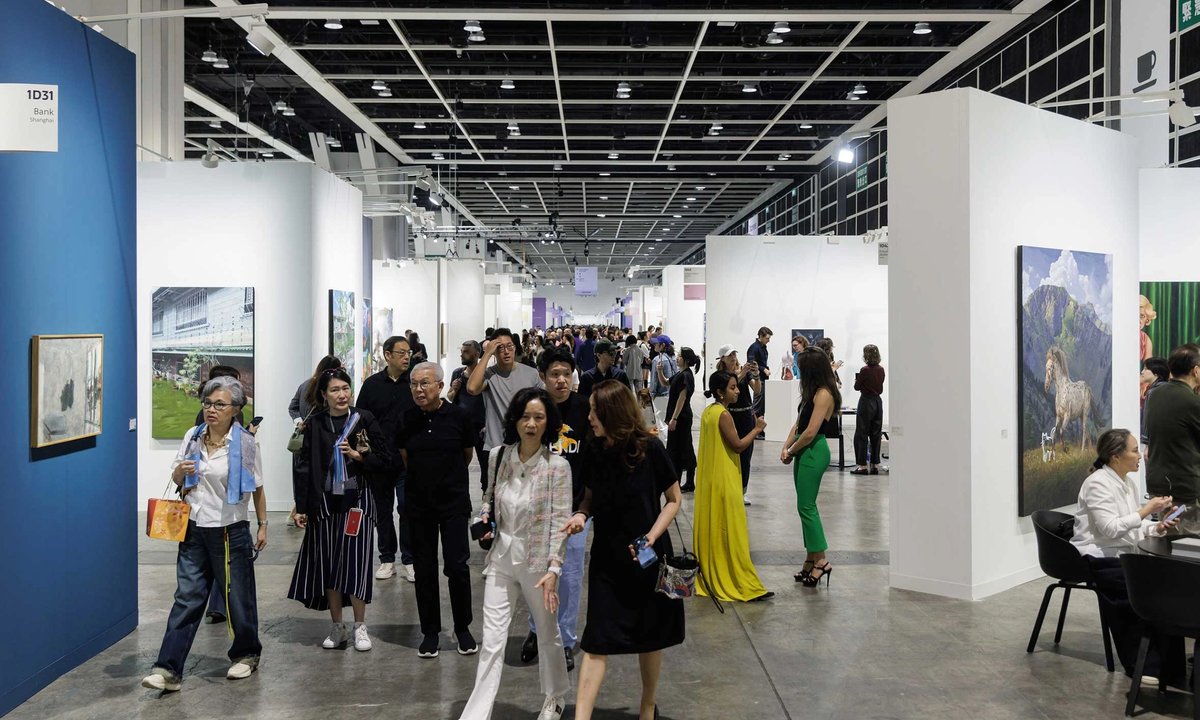Art Basel Hong Kong held its first full-scale edition since the Covid-19 pandemic, while Sotheby’s and Christie’s both opened new headquarters in the city this year
Courtesy Art Basel
The top end of the market continued to contract this year, as trophy lots failed to return in the numbers seen during the Covid-19 pandemic or the years prior to that, while the demand for ultra-contemporary work evaporated, leaving some of the industry’s biggest businesses in a bind.
This was most clear at the auction houses, where sales fell for a second year in a row. At Sotheby’s this came with the announcement of major staff layoffs and reports surfacing of a massive 88% drop in core earnings. This did not prevent Abu Dhabi’s wealth fund, ADQ, from injecting it with $1bn cash—the largest ever investment into art in recent years, according to Sotheby’s chief executive Charles Stewart. The house also closed its deal to buy the Breuer building in New York.
Christie’s garnered its fair share of headlines too, most notoriously falling victim to cyberhackers who got hold of client information and demanded a ransom from the house. It also became the first auction house to open in Saudi Arabia, keen to cash in on the Kingdom’s expanding collector base. Arch rival Sotheby’s, not to be outdone, later announced it would hold the first-ever live auction sale there.
The drop in big-ticket sales affected galleries too: post-war art titan Marlborough gallery announced it would close after 80 years in business. A slew of smaller spaces also closed, from Vitrine to Simone Subal, citing a tough market. Even those that remained open showed signs of leaner times: White Cube axed around 50 front-of-house jobs, while smaller staff cuts were made at Pace and David Zwirner.
The most anticipated fair of 2024 was Art Basel Paris (which changed its name from Paris+ par Art Basel) due to its shift to the handsome Grand Palais, although leaking rainwater from its glass domed roof certainly dampened spirits. Art Basel Hong Kong held its first full-scale show since the pandemic, which opened to a city going through a dramatic shift as parts of the cultural sector leave over Beijing’s influence, while major market players increase their footprints—both Sotheby’s and Christie’s opened new headquarters there this year, and staged live evening sales in September. But it was competitor Frieze that was at the centre of this year’s biggest art fair story, after its parent company Endeavor announced it would be offered for potential sale, as its majority shareholder Silver Lake sought to take it private.
In the European Union, member states moved (or in some cases, failed to move) to exempt art from changes to VAT coming into effect on 1 January 2025. At time of publication, trade groups in France and Germany successfully lobbied their governments to maintain or effect favourable rates, with Germany slashing its VAT from 19% to 7%, while Italy waited for its lawmakers to make a decision.
Finally, 2024 can claim to be the year that closed the epic, nine-year legal drama between Dmitry Rybolovlev and Yves Bouvier, in which Ryblovlev accused Bouvier of cheating him out of hundreds of millions of dollars on art deals that he advised. Of course, Bouvier now faces a tax bill of around $800m, a Swiss court has ruled, proving that the best stories never really end.

